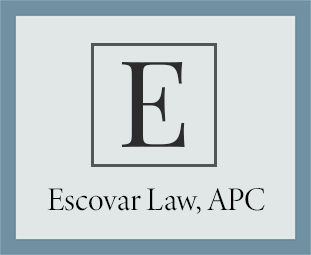Recently, at the San Fernando Courthouse in Los Angeles County, Attorney Steve Escovar was able to successfully litigate a post-conviction Penal Code section 1473.7 Motion to vacate our client’s Health and Safety Code section 11351(a), “Possession for Sale of a Controlled Substance” conviction from 1989.
In 2008, our client had hired other legal counsel to attempt to vacate his conviction for immigration purposes. Unfortunately, the motion was denied. Given changes in law and the subsequent enactment of Penal Code section 1473.7, we believed that our client had a viable renewed motion to vacate the conviction under Penal Code section 1473.7.
After reviewing the court file for this matter and the transcript of the plea proceedings, it was clear that our client was advised on the record that if he was not a citizen the plea could be used to deny naturalization, exclusion from the country, and deportation. However, in our motion we argued that given that this was a controlled substance offense, our client should have been advised that the immigration consequences were mandatory and permanent.
After we filed our motion, the appellate decision of People v. Josefina Ruiz (2020) 49 Cal. App. 5th 1061 was decided and significantly supported the argument that we made in our original moving papers. Thus, we filed a supplement to our motion citing People v. Josefina Ruiz for the proposition that our client should have been advised that immigration consequences will result and that these consequences will be permanent.
At the final hearing on the motion, the court agreed with our position and granted our motion to vacate the plea pursuant to Penal Code section 1473.7. We were then able to negotiate with the prosecution to allow our client to plea to an immigration neutral plea as opposed to the Health and Safety Code section 11351(a) offense currently charged.
This is a great result for our client, especially in light of the fact that he was previously unsuccessful with seeking post-conviction relief!
DISCLAIMER:
The information in this blog post (“post”) is provided for general informational purposes only, and may not reflect the current law in your jurisdiction. No information contained in this post should be construed as legal advice from Escovar Law, APC or the individual author, nor is it intended to be a substitute for legal counsel on any subject matter. No reader of this post should act or refrain from acting on the basis of any information included in, or accessible through, this Post without seeking the appropriate legal or other professional advice on the particular facts and circumstances at issue from a lawyer licensed in the recipient’s state, country or other appropriate licensing jurisdiction. The information on this website is a communication and is for informational purposes only. The facts of every case are unique and nothing on this page or on this website should be taken as legal advice for any individual case or situation. The information on this website is not intended to create an attorney-client relationship and viewing of this information does not create an attorney-client relationship. The result portrayed in this advertisement was dependent on the facts of this case. Results will differ if based on different facts.

